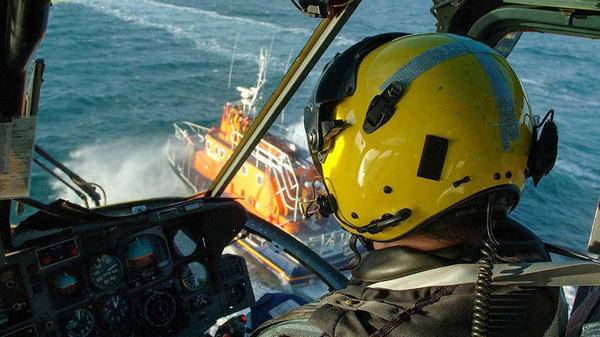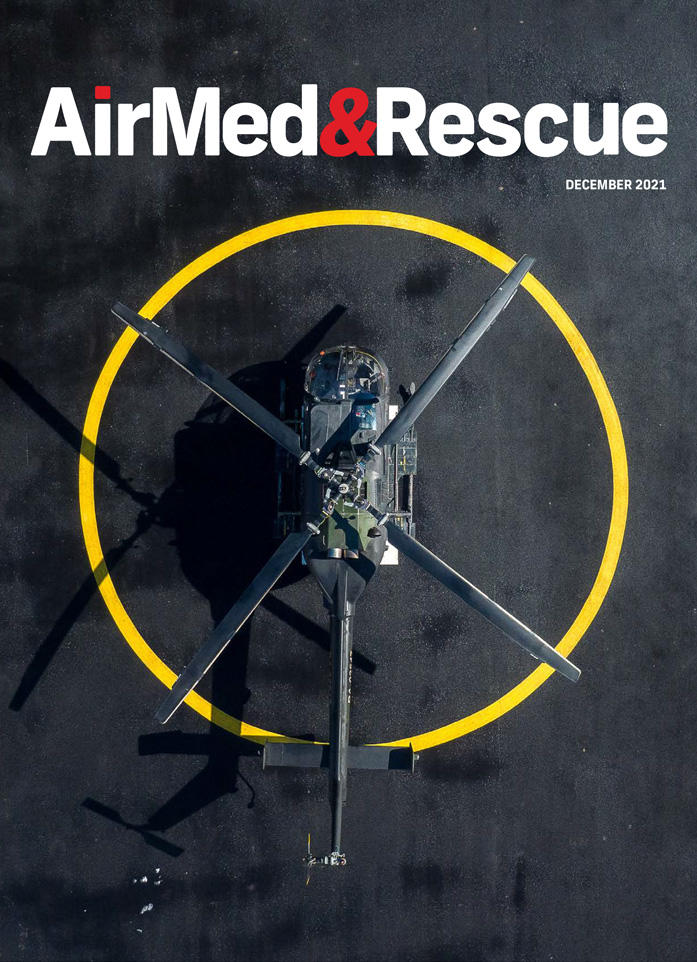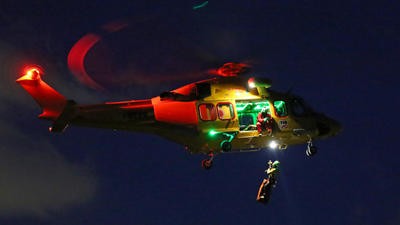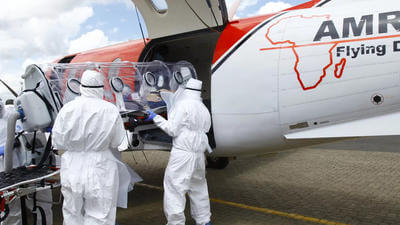Coast Guard crash prompts call for international SAR standards

Search and Rescue International Ltd proposes an international oversight program in response to the November 2021 report findings following the 2017 Irish Coast Guard Rescue 116 crash
States that are signatories to the Chicago Convention accept responsibility for the provision of SAR services, as per the requirements of ICAO Annex 12 – Search and Rescue. When a state contracts a civil operator to conduct SAR aviation activities, it takes on a consequential obligation to conduct appropriate safety regulation and oversight of this activity.
Several safety recommendations from the recently published SAR helicopter accident report following the 2017 Irish Coast Guard crash, have focused on SAR regulation and oversight and the need to provide clarity in the definition of responsibilities. There is a recommendation that both the European Commission and EASA should provide guidance for civil SAR operations, as Regulation (EU) No 2018/1139 applies to the common rules in the field of civil aviation but it does not apply to SAR because SAR is classified as a ‘state’ activity.
Search and Rescue International (SAR International), a worldwide SAR consultancy and training provider headquartered in the UK, was founded with the aim of adding value to those stakeholders tasked with the provision and oversight of search and rescue services executed in the most demanding of operational environments. According to Rowan Greenwood, Director of Regulation at SAR International: “We are focused on the current opportunities for improvement in National SAR regulations and oversight. An accident should not be the catalyst to initiate a review of a National SAR system.”

The value of shared oversight
SAR appears in the Air Navigation Services (ANS) structure of ICAO Doc 9734, Safety Oversight Manual, but not under the Flight Safety Standards or Aircraft Operations hierarchy. As a result, no SAR Standards and Recommended Practices (SARPs) exist to assist state Civil Aviation Authorities (CAA) to construct civil SAR rules as part of their SAR system obligations.
As there is no worldwide standard approach to SAR safety regulation and oversight, consequently there are inconsistent levels of oversight of SAR systems globally. David Swan, Director of Operations at SAR International, stated: “This could potentially cause tension between the SAR regulator, SAR contracting agency and SAR operator, which we believe is a latent hazard to the safe conduct of SAR operations.”
Some European CAAs currently issue approvals or alleviations from commercial air transport regulations to a SAR operator or request that the operator files differences with the CAA when not in compliance with these regulations, although neither are standard or robust ways to exercise appropriate oversight of this highly specialist area of flight operations.
Search and Rescue International believes a state performance-based SAR oversight program needs to be established and developed rather than the civil operator being overseen in a commercial air transport manner with associated SAR related alleviations and permissions. Additionally, SAR should be subject to Flight Safety Standards, as well as ANS, with the additional requirement to establish, implement and maintain SAR SARPs in the form of National SAR Rules for SAR aviation service providers.

Improving SAR regulation
The International Civil Aviation Organization (ICAO) regional SAR plans acknowledge the lack of effective SAR oversight functions. The ICAO Universal Safety Oversight Audit Programme (USOAP) focuses on a state’s capability to provide safety oversight and typically audits a CAA every five to eight years. In the absence of appropriate SARPs for SAR aviation operations, a CAA is unlikely to receive USOAP feedback on SAR from a flight operations or oversight perspective. This could lead to a false sense of security in the belief that there are no issues with that aspect of their national civil aviation system.
Search and Rescue International is actively focused on providing a solution to improve SAR regulation and oversight. We recently presented our experience on lessons learned conducting a National SAR Framework Review to the ICAO European Regional SAR Task Force. Brian Brophy, SAR International Director of Training, commented: “We have commenced development of an ICAO Training Package for effective SAR system oversight in association with the Regional Training Centre of Excellence at the Joint Aviation Authorities Training Organisation, based at Schiphol-Rijk in the Netherlands. We have also developed specific training programmes for SAR SMS and AOC management, National SAR plan development, and development of SAR regulations.”
Search and Rescue International can also provide support as ‘qualified entity’ to CAAs and States worldwide in relation to SAR regulatory oversight and legal obligations for SAR Regulators, SAR contracting agencies and SAR aviation operators.
Search & Rescue International will be presenting a training course titled ‘Helicopter SAR Operational Management System’ at HAI HELI-EXPO in Dallas in March 2022.
Registration is available on www.heliexpo.com

December 2021
Issue
- Avionics upgrades making flight safer
- The equipment protecting crews from infectious diseases
- The move from single to twin-engine helicopters
- What to do if a pilot is incapacitated
- Interview: Kim Germishuys, Dutch Caribbean Coast Guard
- Profile: AMREF Flying Doctors
Editorial Team
The AirMed&Rescue Editorial Team works on the website to ensure timely and relevant news is online every day. With extensive experience and in-depth knowledge of the air medical and air rescue industries, the team is ready to respond to breaking industry news and investigate topics of interest to our readers.



